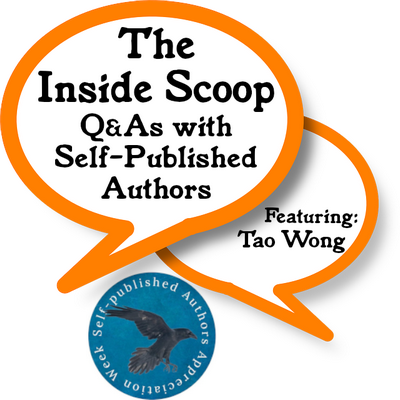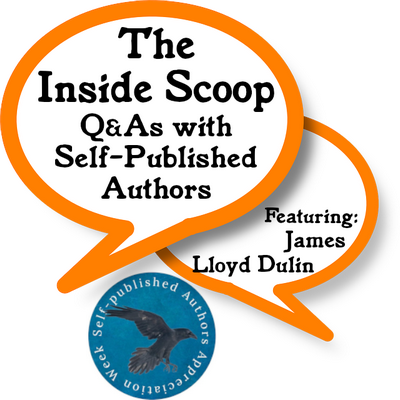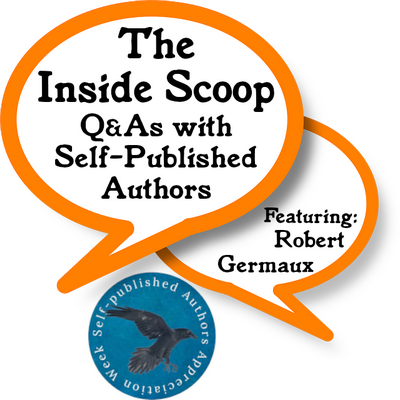
Here’s our second dose of Robert Germaux today (his guest post, Why Do We Write? showed up earlier). In this Q&A, he gets to talk about the nitty-gritty of his experience in self-publishing (as opposed to the more philosophical “Why” from before). As you can see from the first question (because there’s no way I call an author by their first name) he took it upon himself to do a little remix on the phrasing of some of these questions, making me sound better in the process—I appreciate that almost as much as the answers he gave.
Tell us a little about yourself, Bob.
I started writing after spending thirty-one years teaching high school English in Pittsburgh. Like (I assume) most people who follow your blog, I’m a lifelong bookaholic. I’ve written mostly mysteries, but also a couple of romance novels, along with three (four, probably, by the time you post this) collections of essays about “life and stuff.” No website, but you can find my books and more info about me at my Amazon Author Page.
What kind of expenses do you incur with self-publishing your books?
My primary expenses in publishing my books are cover art (all of my covers have been done by the wonderful Brandi McCann in Maine), and formatting (mostly by Word-2-Kindle). I used to have some online promotion work done by a woman in Texas, but Susan retired a few years ago, and I haven’t replaced her. So at the moment, I spend around $350 to get a book ready for publication, which means my break-even point for any given book is 175 sales. That hasn’t happened with any of my books, so no, I don’t make money on these things. I used to feel guilty about spending so much money on my writing, with little to no return, until my wife said I should look at my writing as a hobby that I enjoy. That led me to write “Well, I Don’t Play Golf” for one of my Grammar Sex books of essays.
Speaking of my wife, Cynthia’s my biggest fan, not to mention my “beta reader.” She knows my writing style and my characters as well as I do, and 99% of the time, I gladly accept her edits to my work.
A final note. I’ve been on Amazon for just under ten years now, and I’ve sold 650 books. I doubt I’ll ever hit that break-even point with any of my books. On the other hand, people have borrowed my books from Amazon and read almost 30,000 pages, so I know I have a few fans out there. Fortunately, I don’t need to make money with my writing. I write because I love to write. Heck, I’m having fun doing this. Plus, it keeps me off the streets.
How do you promote your books?
Early on, Susan arranged for book tours for several of my books, but these days, I mostly rely on my small but loyal fan base to buy my books. Some of them get alerts when I publish a new book, others follow me on FB. Plus, I have a good many friends and family members who promote my work on their social media sites. And, of course, H.C., you’ve has been more than generous with your time over the years in terms of reading and reviewing most of my books.
What’s the breakdown of your audience?
I’d say at least half of my readers are people who know me: family members, friends, former colleagues, former students, et al. The rest are just people who’ve stumbled across my books online or heard about them from a friend, etc. One cool thing is that last year, someone in the UK borrowed all five of my Jeremy Barnes mysteries and read them in the space of about a week. I got an essay (“My UK Binge-Reader”) out of that for Grammar Sex 4 (Seriously?), the book I’m writing at the moment. Along with that, I’ve had a sale in India and another in Australia, allowing me to tell people I’ve “gone international.”
What made you decide to self-publish? Have you tried getting a deal with a publisher?
After I finished Small Bytes, my first Jeremy Barnes mystery, I queried a lot of agents, most of whom wouldn’t accept manuscripts from unpublished authors (yeah, that was maddening). But a guy here in the Pittsburgh area not only read the book, he immediately offered to represent me. I signed a contract with Uve (that was a red-letter day for this boy), then sat back and waited for the offers to roll in. (Ah, naïveté, thy name is Germaux.) Over the next several years, as I kept writing, Uve kept pushing my work to publishers big and small. He came close a couple of times to, as he put it, finding a home for my books, but despite his best efforts, nothing ever happened. (A man who owned a small publishing house told Uve that my work was “really good,” but he only published about a dozen books a year and just couldn’t justify the expense on a new author.) Eventually, I decided to go the indie route, and at my suggestion, Uve and I parted ways, professionally. We still keep in touch, and he continues to encourage me. BTW, Uve’s a fairly well-known agent. He represents best-selling authors, and he’s negotiated movie deals for some of his clients. He never took a penny from me (even when I offered) during the years he tried to find a home for my books. Just to have him tell me my work is worthy of publication meant a lot.
How do you keep to whatever deadlines you set? If you could start over, knowing what you know now, what would you do differently?
I’ve never really had a problem in terms of getting the work done. I truly love writing, and most days I can’t wait to get started. It probably helps that I’ve always been very organized, something I quickly learned was a prerequisite to surviving as an English teacher with over 2,000 student compositions to grade every year.
If I had it to do all over again, I’d probably go the indie route right away (my only regret being missing out on working with Uve). I know now that the odds of an indie author finding a publisher are incredibly low. Doesn’t mean it doesn’t happen, but it’s rare. (For those very few indie writers who make that leap to traditional publishing, I say congrats. Good on you!) I wasn’t driven to be a commercial success (although that would have been just dandy). I just wanted to write and put my work out there, so I would have done that sooner.
Thanks for your time and participation! Hope you enjoyed it! And do know that there are many of us out here who appreciate and applaud what you do (and our number is growing)!
Be sure to look over his Author Page, he’s got a little bit of everything—contemporary fic, P.I. novels, police procedurals, and some non-fiction essays for you to choose from.
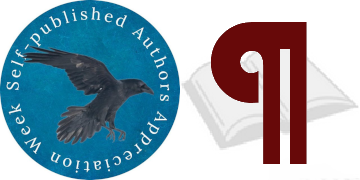
Clker-Free-Vector-Images from Pixabay
The 2023 Self-Published Authors Appreciation Week Logo was made by Witty and Sarcastic Book Club


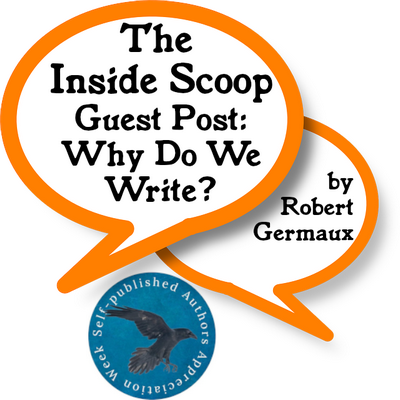 Robert Germaux has always been game for anything I’ve asked him if he wanted to do–which is great, because I’ve always appreciated whatever he produces. Better than the things he’s done with me are the books that he’s provided for me and/or I’ve purchased. Like this post, for example, which is a revised version of something that appeared in one of his books and on this site a few years ago. He’ll be back for the Self-Publishing Q&A here in a few.
Robert Germaux has always been game for anything I’ve asked him if he wanted to do–which is great, because I’ve always appreciated whatever he produces. Better than the things he’s done with me are the books that he’s provided for me and/or I’ve purchased. Like this post, for example, which is a revised version of something that appeared in one of his books and on this site a few years ago. He’ll be back for the Self-Publishing Q&A here in a few.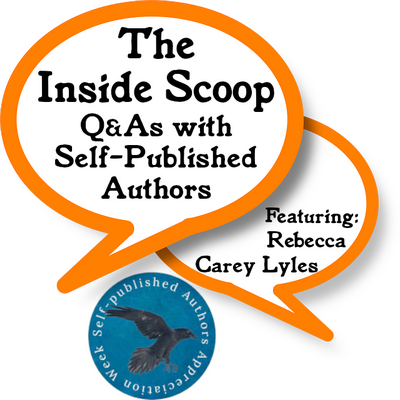
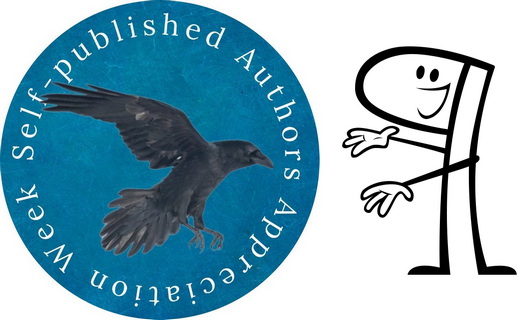

 The World Savers
The World Savers 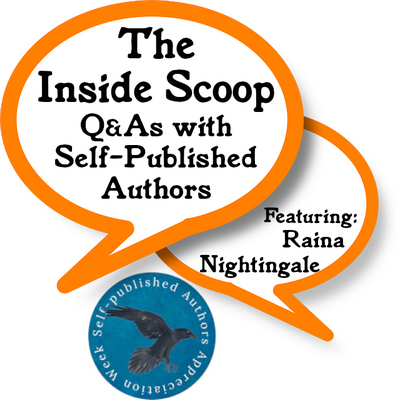
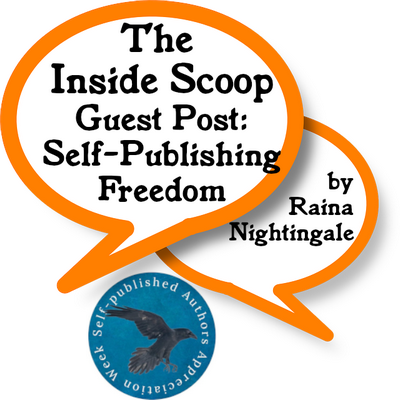 One of the first things that Raina Nightingale said to me was that she wanted to do a Guest Post about the freedom of self-publishing. This sounded perfect to me, that freedom is one of those things that defines self-publishing to me. I’ll be posting the Self-Publishing Q&A with Nightengale a little later this morning, be sure to come back for that.
One of the first things that Raina Nightingale said to me was that she wanted to do a Guest Post about the freedom of self-publishing. This sounded perfect to me, that freedom is one of those things that defines self-publishing to me. I’ll be posting the Self-Publishing Q&A with Nightengale a little later this morning, be sure to come back for that.